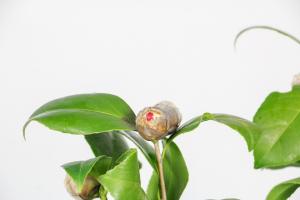Does Salt Water Kill Poison Ivy Plants?
Poison ivy is a widespread plant species known for its ability to cause severe skin irritation upon contact. The plant contains an oily substance called urushiol, which triggers an allergic reaction in most humans. While poison ivy poses a significant risk to humans, it is also susceptible to different types of treatment. One common method proposed to eliminate poison ivy is the use of saltwater. But does saltwater indeed kill poison ivy plants? In this article, we delve into the effectiveness of saltwater for poison ivy control.
The Science Behind Saltwater and Poison Ivy Control
Salt, or sodium chloride, is a common household item that has been hailed for its versatile use. When saltwater comes into contact with a plant, it can cause dehydration or osmotic shock. The dehydration process occurs because the saltwater reduces the amount of water that the plant absorbs. At the same time, the high concentration of salt ions in the water can damage the plant's tissues. In theory, exposing poison ivy plants to saltwater can disrupt their cellular processes and lead to their demise ultimately.
Factors that Influence the Effectiveness of Saltwater on Poison Ivy Plants
The effectiveness of saltwater on poison ivy plants varies depending on various factors. First, the strength of the saltwater solution used can determine the degree of damage of the plant. In most cases, a higher concentration of salt is likely to kill the plant effectively. However, using saltwater that is too strong can lead to the death of other plants in the vicinity, so careful application is crucial. Second, the time of application is crucial. Saltwater is more effective on young and actively growing poison ivy plants as compared to mature dormant plants.
Possible Disadvantages of Using Saltwater for Poison Ivy Control
While saltwater may seem like a natural and cost-effective method for controlling poison ivy, it is not without potential drawbacks. First, saltwater can accumulate in the soil and affect the quality of the surrounding plants' habitat. In some cases, using saltwater excessively can lead to the contamination of the surrounding groundwater. Second, saltwater treatment may not be effective on larger infestations of poison ivy plants because of the difficulty of application. Third and finally, saltwater is a temporary solution and may require repeated applications for complete control of the plant.
Conclusion
Overall, saltwater can be an effective method for controlling poison ivy plants, but its effectiveness varies depending on the concentration, timing, and nature of the infestation. It is crucial to note that saltwater treatment may not be the best approach for all situations, and it should be used with caution. For larger infestations, it is advisable to seek professional help or alternative methods for effective poison ivy control.

 how many times do yo...
how many times do yo... how many planted tre...
how many planted tre... how many pine trees ...
how many pine trees ... how many pecan trees...
how many pecan trees... how many plants comp...
how many plants comp... how many plants can ...
how many plants can ... how many plants and ...
how many plants and ... how many pepper plan...
how many pepper plan...

































